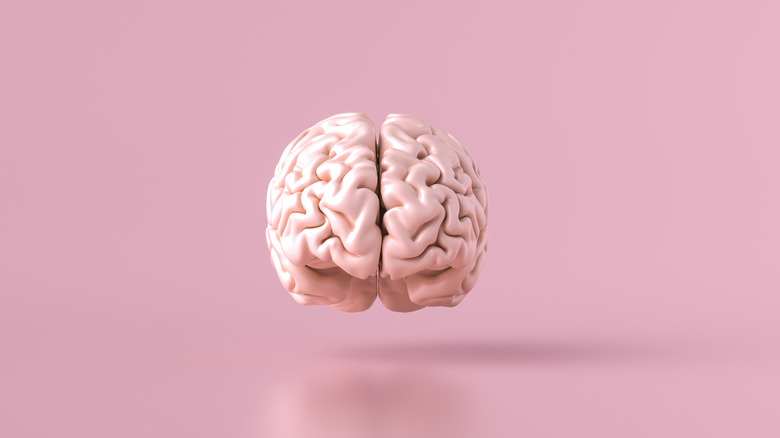How The Pandemic Has Really Changed Our Brains
It goes without saying that the events of the pandemic changed the world. Between mask mandates, vaccination debates, work-from-home protocols, and inflation continuously on the rise, a lot has changed over the past two years. Consequently, your brain has changed, too. As MindBodyGreen explains, the mind and brain are two different things. While the mind takes part in the experience of different events, the brain turns that information into physical structures. Your mind literally reshapes your brain.
With that being said, a 2021 study in Psychological Medicine found that anxiety levels have significantly increased due to the pandemic. In turn, brain function has altered. Every experience gets programmed into your brain in a manner that produces a habit. Those habits then lead to behavior changes, according to MindBodyGreen. Though this could be a good thing when you're trying to eat healthier or be more studious, negative habits and behavior changes trigger warning signs that play out emotionally and physically. Left ignored, symptoms could get worse. The good news is that none of those negative changes have to be permanent.
3 practices for tackling negativity
MindBodyGreen says it's important to face negativity head-on instead of suppressing or ignoring it. When you face negativity, you position yourself to process and rewire those thoughts before they take over your life.
One way to do this is through a practice called mind-management. Neuroscientist Caroline Leaf told MindBodyGreen that the technique she developed involves 5 steps. First, take stock of how you think and feel at that moment. Then reflect by continuously asking yourself "Why?" Next, you write (not type) your thoughts and feelings on paper. Reframe those thoughts by turning them into possibilities that build your resiliency. Lastly, give yourself a quick action to perform like taking a deep breath or repeating an affirmation anytime the negative thought arises.
The second way to tackle negativity is through brain-building. This exercise starts with reading a section of a blog, book, or magazine article that you're interested in. Afterward, reflect on what you read and write down what it means. Then, compare what you wrote to what you read to see if you understood it clearly, and explain it out loud.
The third way is to connect with elders. A 2021 study by the University of Connecticut found that older people are more successful at managing stress caused by the pandemic than younger generations. Researchers believe older generations have a greater sense of satisfaction with life. Building a friendship with someone older may offer a new perspective that helps you navigate life with more ease, according to MindBodyGreen.


